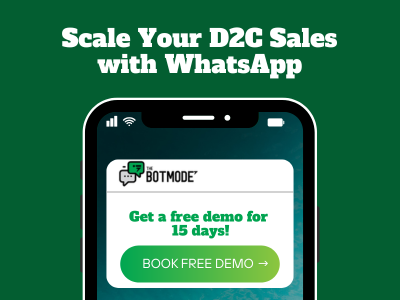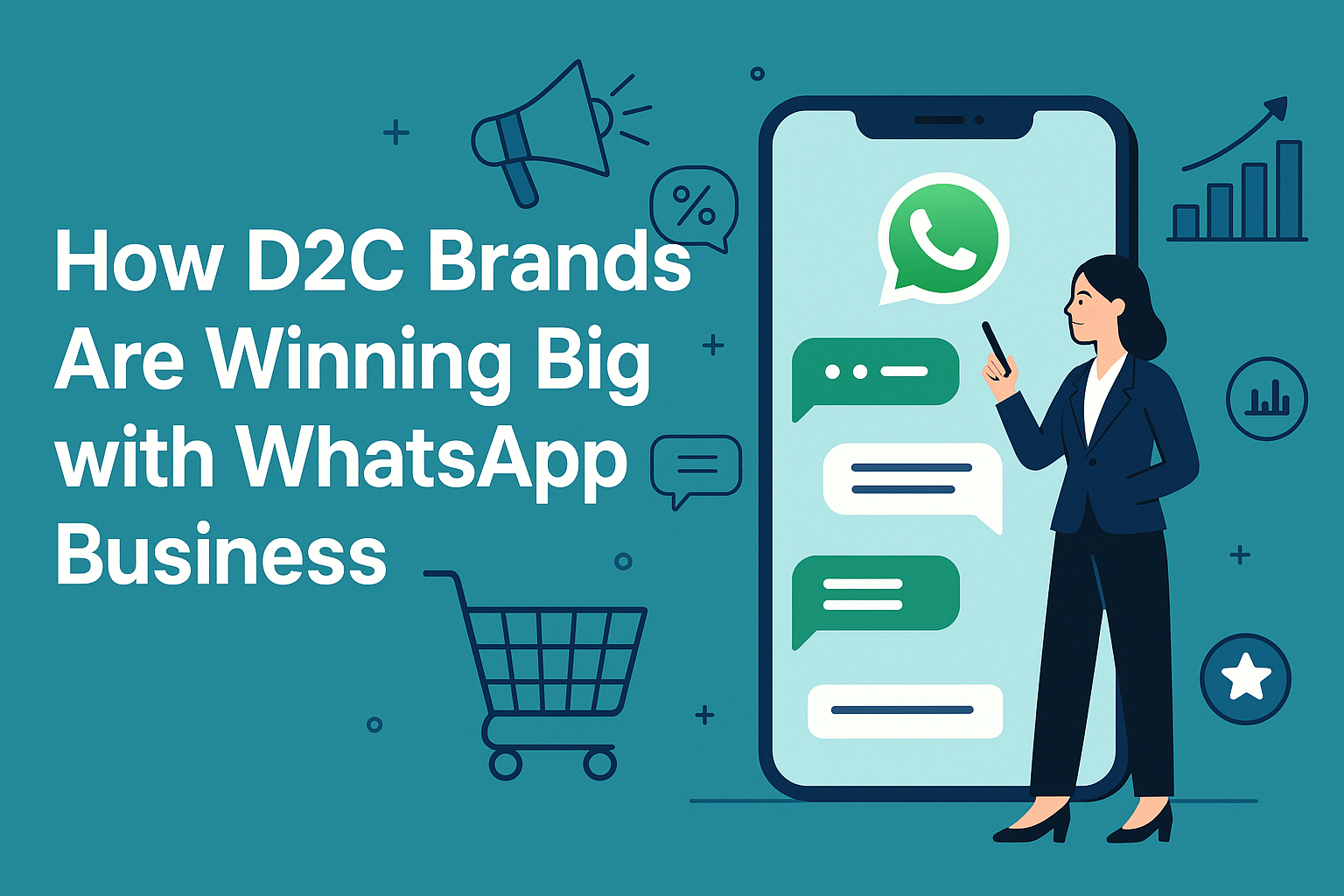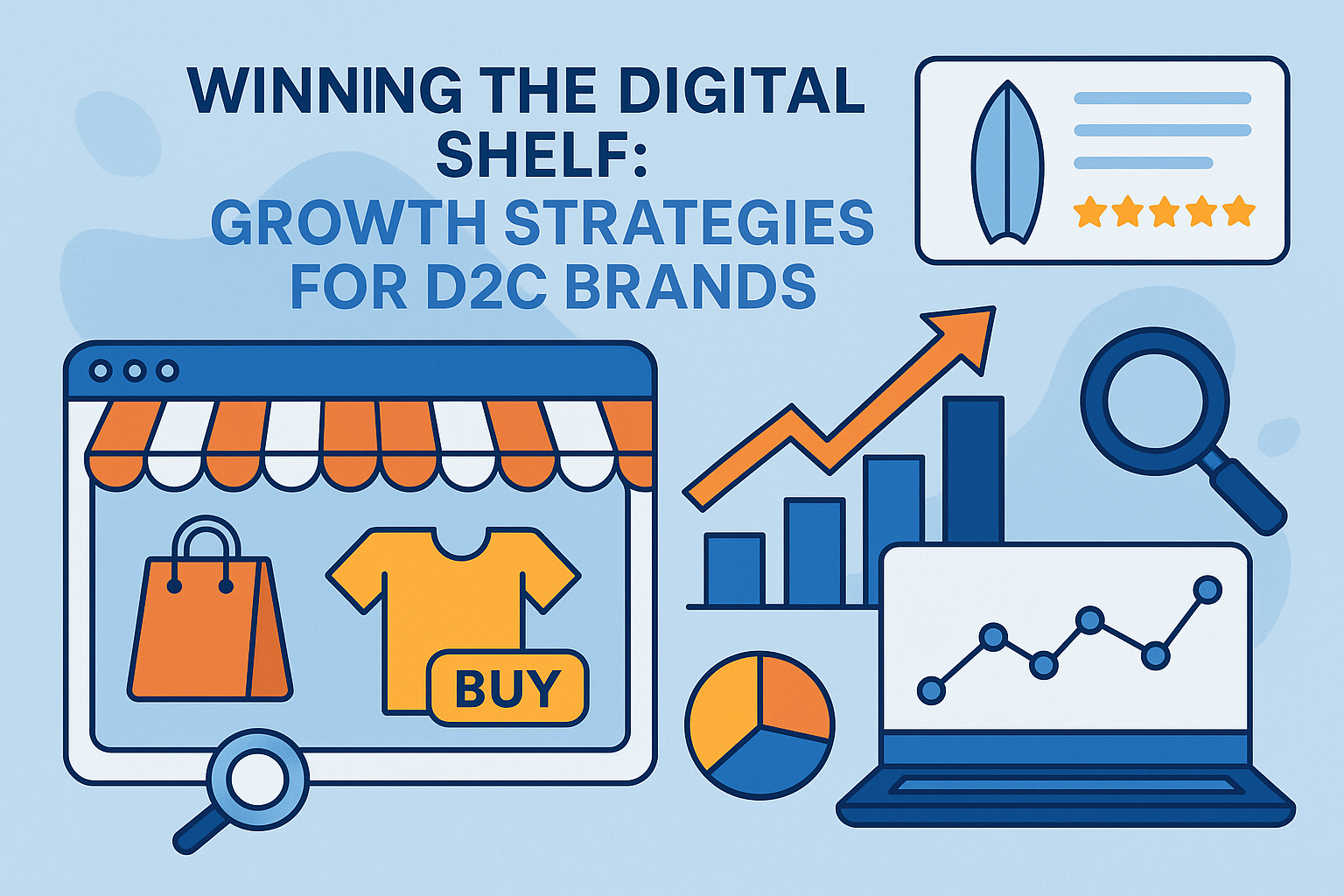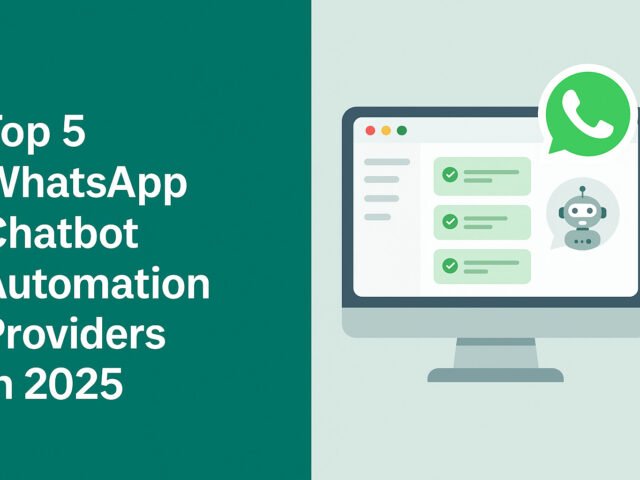In today’s data-driven D2C world, managing customer information effectively is the secret to building long-term loyalty and increasing revenue. Integrating WhatsApp with your CRM system can revolutionize how you handle leads, conversations, and customer relationships. In this blog, we’ll show you how WhatsApp CRM integration works and why it’s a must-have for D2C brands looking to scale.
Why WhatsApp CRM Integration Matters for D2C Brands
D2C (Direct-to-Consumer) brands rely heavily on real-time conversations, fast responses, and personalized engagement. WhatsApp is already one of the most popular channels for communicating with customers. But without proper data management, messages can get lost, follow-ups can fail, and conversions can drop.
That’s where CRM integration helps.
Benefits of WhatsApp CRM Integration:
- Centralize customer data
- Automate lead capture & follow-ups
- Track conversations with full context
- Segment customers for better targeting
- Improve sales team productivity
Top CRMs That Work Seamlessly with WhatsApp
Many modern CRMs now offer native or third-party WhatsApp integrations. Here are some commonly used ones:
- HubSpot
- Zoho CRM
- Salesforce
- Freshsales
- LeadSquared
With TheBotMode’s automation tools, you can connect WhatsApp to these CRMs using ready-to-deploy APIs and no-code integrations.
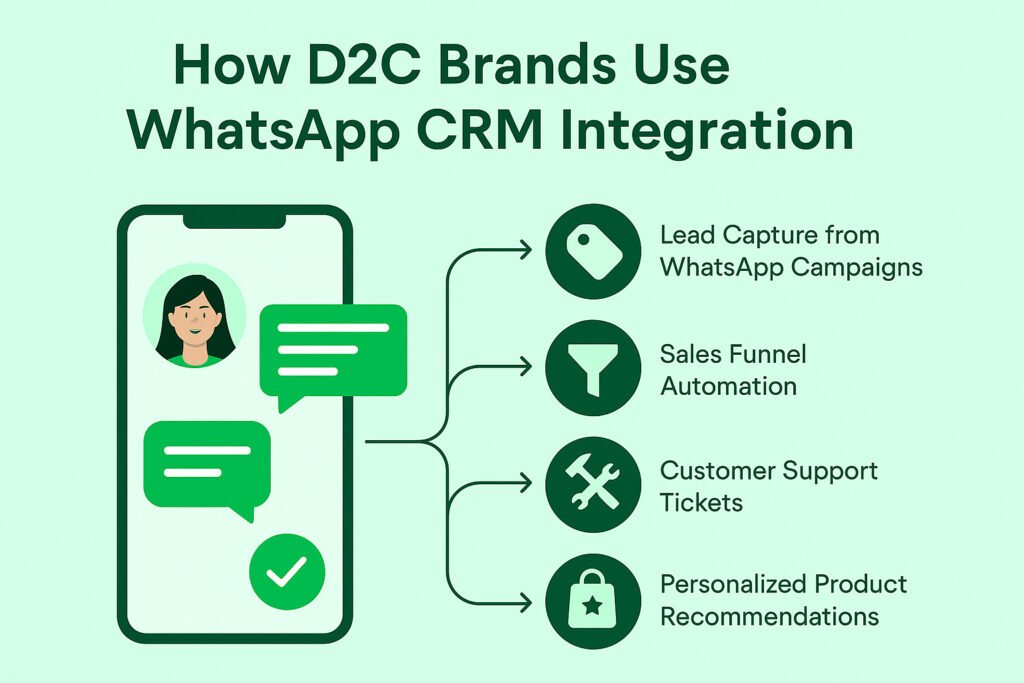
Use Cases: How D2C Brands Use WhatsApp CRM Integration
1. Lead Capture from WhatsApp Campaigns
Run a WhatsApp ad or broadcast, and capture every inbound message directly into your CRM with name, phone number, and chat history.
2. Sales Funnel Automation
Set up automated sequences in your CRM that trigger WhatsApp messages—like follow-ups, discount codes, or reminders.
3. Customer Support Tickets
Convert WhatsApp chats into tickets in your CRM to assign agents, track resolution times, and improve customer satisfaction.
4. Personalized Product Recommendations
Use purchase history and behavior data stored in CRM to send tailored product suggestions via WhatsApp.
Step-by-Step: How to Integrate WhatsApp with Your CRM
- Choose the Right CRM (with WhatsApp compatibility)
- Set Up WhatsApp Business API via a provider like TheBotMode
- Connect Your CRM to WhatsApp using integration tools or APIs
- Automate Workflows for lead nurturing, follow-ups, and support
- Train Your Team to use the CRM-WhatsApp dashboard effectively
- Monitor Analytics to track open rates, response times, and ROI
Why TheBotMode is the Best Tool for WhatsApp CRM Integration
TheBotMode makes it easy to connect WhatsApp with your CRM—without technical hassles. Our platform offers:
- Ready CRM integrations
- Pre-built automation workflows
- Smart segmentation
- 24/7 chatbot & live agent switch
- Detailed analytics dashboard
Whether you’re using HubSpot or Zoho, TheBotMode ensures your team never misses a lead or customer message.
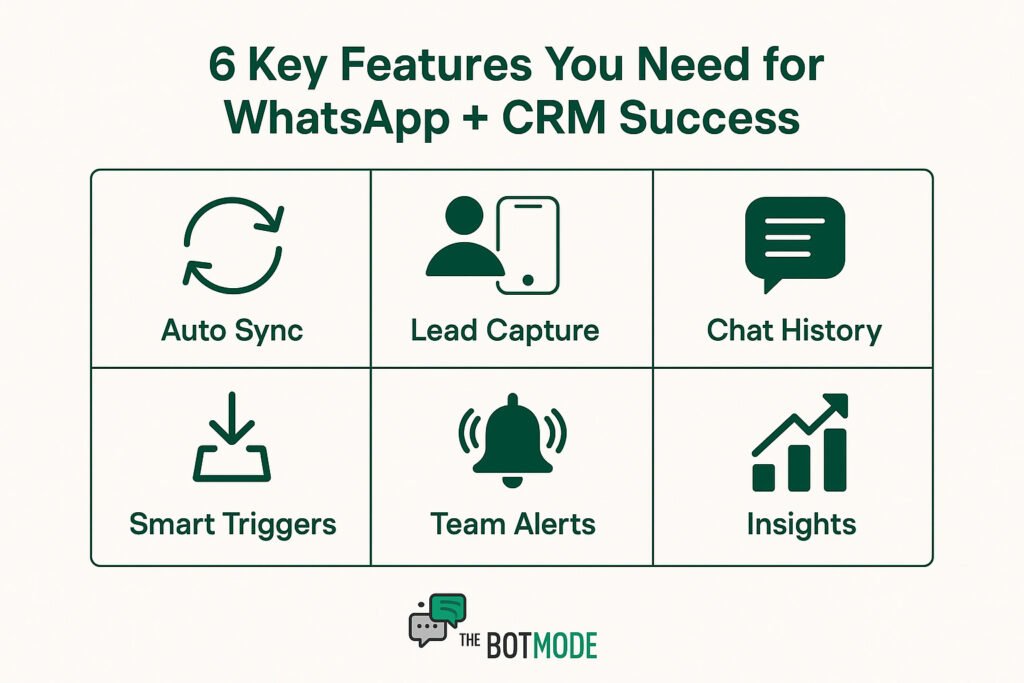
Final Thoughts
Managing customer data manually across channels is outdated and inefficient. With WhatsApp CRM integration, you can deliver a smoother, faster, and more personalized customer experience. For D2C brands, it’s not just about messages—it’s about relationships.
Start managing your customer data like a pro with TheBotMode’s WhatsApp automation and CRM integration solutions.
FAQs:
Q1. What is WhatsApp CRM integration?
WhatsApp CRM integration is the process of connecting WhatsApp Business API with your CRM system to manage customer conversations, data, and workflows from one place.
Q2. Can small D2C brands use WhatsApp CRM integration?
Yes! With no-code tools like TheBotMode, even small D2C brands can automate and streamline their WhatsApp conversations.
Q3. Is WhatsApp integration secure?
Absolutely. WhatsApp Business API ensures end-to-end encryption and data privacy when connected to verified CRMs.
Q4. How much does WhatsApp CRM integration cost?
It depends on your CRM and WhatsApp API provider. TheBotMode offers affordable plans for startups and growing D2C brands.
Q5. Can I track customer history in CRM from WhatsApp chats?
Yes, with integration, all chat histories and customer interactions are logged in your CRM.


